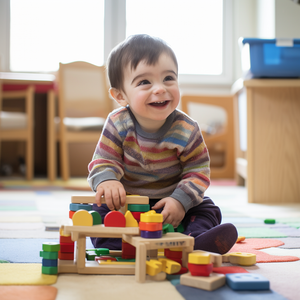Cart
Your cart is empty
Looks like you haven’t added anything yet, browse new arrivals below!
Continue ShoppingLooks like you haven’t added anything yet, browse new arrivals below!
Continue Shopping
Aug 28, 2023
One of the most transformative periods of human life is early childhood. The first few years are marked by rapid development, both physically and cognitively. For children with cerebral palsy (CP), these years are particularly crucial. Recognizing deviations from typical milestones and initiating early interventions can make a world of difference in the child's future quality of life.
Understanding Developmental Milestones
Developmental milestones are the specific sets of skills or behaviors that most children demonstrate by a certain age. These milestones are categorized into:
Motor Skills:
Cognitive Skills: Abilities related to thinking, learning, and solving problems.
Social and Emotional Skills: Interacting with others, understanding feelings, and developing relationships.
Speech and Language Skills: Communicating, understanding language, and using words.
Identifying Milestones in Children with CP
Children with CP often face delays or alterations in reaching these milestones due to their motor challenges. Here are some typical variations:
Motor Skills:
Cognitive Skills:
Social and Emotional Skills:
Speech and Language Skills:
The Power of Early Intervention
Early intervention refers to specialized services and support provided for children with developmental delays or disabilities and their families. The benefits of early intervention for children with CP are profound:
Improving Current Skills: Early intervention can help children utilize their current abilities to their fullest.
Developing New Skills: It provides children with the tools to learn new skills, be it motor, speech, or social.
Preventing Regression: By providing consistent support, early intervention can prevent potential regressions or loss of skills.
Components of Early Intervention
Physical Therapy (PT): Focused on improving gross motor skills like sitting, crawling, and walking.
Occupational Therapy (OT): Aims at refining fine motor skills, daily activities like dressing, and sensory processing.
Speech and Language Therapy: Works on improving speech, language comprehension, and articulation.
Developmental Services: These offer broader support, targeting cognitive and social skills.
Support Services: Including counseling, service coordination, and training for caregivers or parents.
Concluding Thoughts
Identifying and addressing developmental delays early on is pivotal for children with cerebral palsy. It not only enhances their current capabilities but also shapes their future trajectories, setting them up for success in later years. By understanding typical milestones and the importance of early intervention, caregivers and professionals can provide the best possible support for these children.